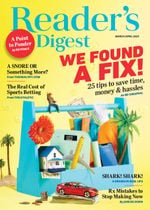Free Gold Foil Digital Scrapbook Paper
5 Times Paper Is Way Better Than Digital
Here's when to skip the impulse to reach for your phone or laptop and pick up a pen instead.
 iStock/petrunjela
iStock/petrunjela
Reading books
E-readers appeal by being travel-friendly and storing a whole library at your fingertips, but print books seem to win when it comes to comprehension. Studies have shown that readers often remember more when they consume material in print rather than from a digital source. According to Time, this is most likely linked to the concept of spatial context, which causes "seemingly irrelevant factors like remembering whether you read something at the top or the bottom of page—or whether it was on the right or left hand side of a two-page spread or near a graphic—can help cement material in mind." This what your quirky reading habits reveal about your personality.
 iStock/draganajokmanovic
iStock/draganajokmanovic
Writing thank you notes
After receiving a gift or having an interview, it is customary to give thanks to the giver or interviewer. According to emilypost.com, "The rule of thumb is that you should send a written note any time you receive a gift—even a 'thank you' gift—and the giver wasn't there to be thanked in person." For a job interview, sending a written thank you note shows extra effort and thought, and reminds the interviewer how much you appreciated and valued their time. However, consider the job you have interviewed for when choosing how to say thank you. If the company is highly integrated in the tech industry or has extremely quick turnaround on hiring choices, it may be savvier to send a thoughtful email. Here's how to write a heartfelt thank-you note.
 iStock/Julia_Sudnitskaya
iStock/Julia_Sudnitskaya
Planning your day
According to the market research firm Millward Brown, "tangible materials leave a deeper footprint in the brain." The physical and sequential task of writing letters and words creates a stronger connection with working memory than tapping on a keyboard, University of Washington professor of educational psychology Virginia Berlinger told theWall Street Journal. The physical representation of written plans and tasks is then perceived as more "real," which makes them easier to remember. Here are tricks to writing a more productive to-do list.
 iStock/TARIK KIZILKAYA
iStock/TARIK KIZILKAYA
Reading a magazine
As a kid, there was something ritualistic to me about slowly turning the pages of a magazine, reading every article and ripping out sections and photographs to paste on my wall. Browsing media online can detract from this experience. Reading articles online invites easy distraction from other sites or advertisements, and seems less like a relaxing way to spend free time or wind down. Additionally, printed material has been found to be more engaging to readers, unlike digital versions that are more likely to be skimmed.
 iStock/DragonImages
iStock/DragonImages
Taking notes
A UCLA study has shown that manually writing notes with a pen and paper is more conducive to retaining information than typing notes on a laptop or computer. This is because "analog" note takers—those who used a pen and paper—were forced to synthesize lectures rather than merely transcribe everything they heard word for word. Being forced to sort out what was worthy of being written helped to trigger stronger mental processes that promote retention, a phenomenon known as "desirable difficulty." Additionally, digital note-takers often felt less compelled to study because they felt all the answers were right there on their laptops, and would typically perform more poorly on exams.
Originally Published: July 20, 2016
![]()
Sign up for articles sent right to your inbox
Enjoy the best stories, advice & jokes delivered right to your inbox!

Subscribe & SAVE Save Up To 84%!
Free Gold Foil Digital Scrapbook Paper
Source: https://www.rd.com/list/paper-better-digital/
Belum ada Komentar untuk "Free Gold Foil Digital Scrapbook Paper"
Posting Komentar